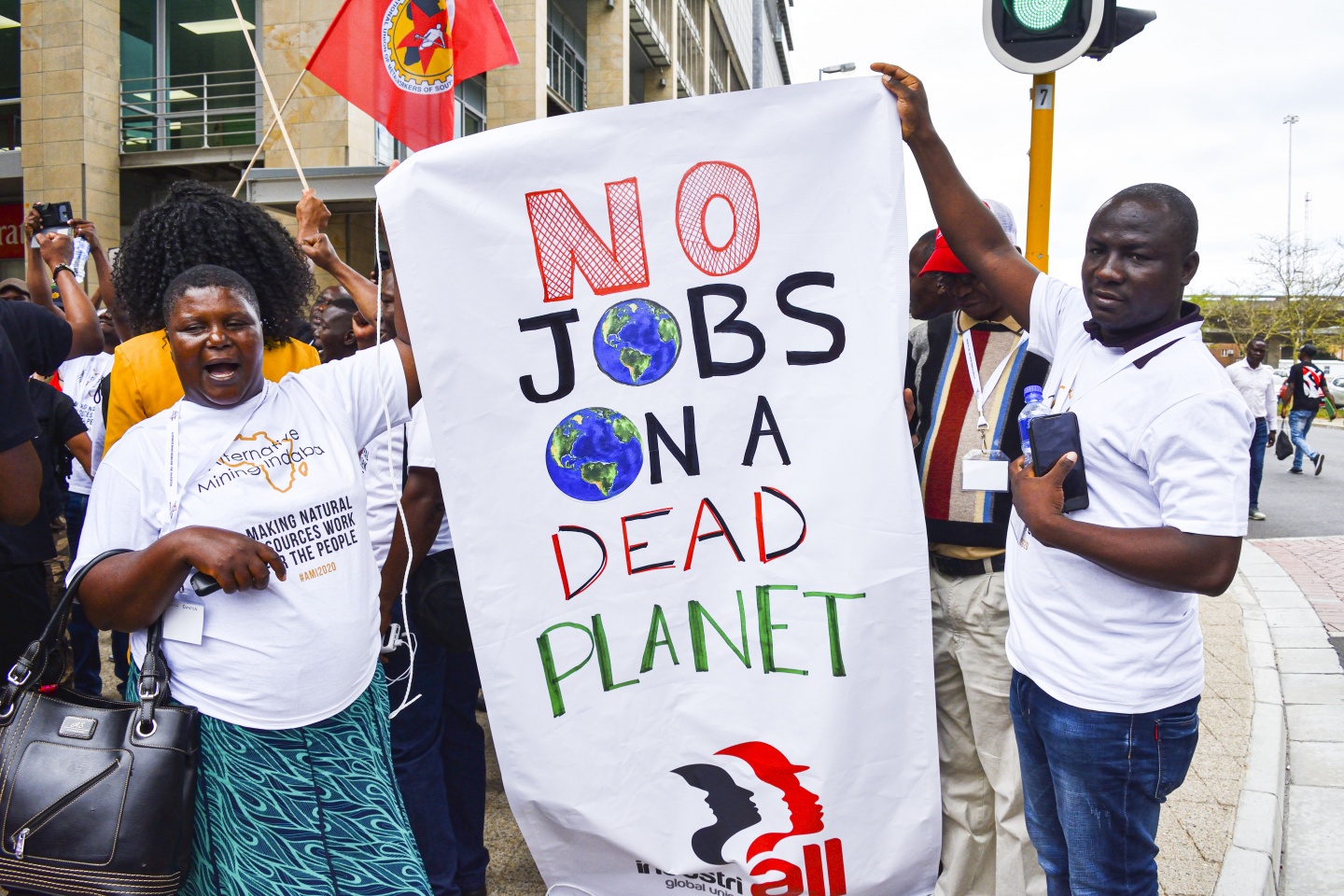Read this article in:
English
15 February, 2021IndustriALL Global Union affiliates from Sub Saharan Africa were part of the 700 participants in the virtual 2021 Alternative Mining Indaba (AMI) on 8-12 February, which discussed the impact of the Covid-19 pandemic on mineworkers, artisanal and small-scale miners, and mining affected communities.
Participants included trade unions, faith-based organizations, community-based organizations, civil society organizations, mining companies, and other stakeholders.
The AMI, which supports a “just and people centred” approach to mining, started as a civil society and community grassroots organizations platform to engage with the business-oriented African Mining Indaba, held annually in Cape Town, South Africa. This year, both events were hosted virtually.
This year’s AMI theme was “Building forward together pivoting the extractives sector for adaptation and resilience against Covid-19” - reinforced previous resolutions on how to transition to sustainable mining. One of the AMI’s declarations stated:
“The Covid-19 health pandemic is a moment of crisis but also presents us with an opportunity to agitate for a broad scale green transition, and this requires an unprecedented level of international cooperation and solidarity. This is the time for mining corporates to change the way they do things particularly with regards to corporate social responsibility, social labour plans and ecological responsibilities, and to forge social cohesion.”
Glen Mpufane, IndustriALL director for mining says:
“Trade unions are an important constituency in the AMI because workers and their families are part of the mining communities. As labour, we support the mobilization of mineral resources for community development, and for sustainable industrialization of Africa.”
The AMI said mining companies should promote health and safety and be involved in Covid-19 awareness campaigns, provide personal protective equipment and hand sanitizers to mineworkers and communities.
Issues discussed included accountability on tax justice by mining companies as one of the ways to deal with tax evasion and how to stop illicit financial flows. There were recommendations to use the African Minerals Governance Framework to curb the illicit financial flows. According to the United Nations Office on Drugs and Crime, Africa loses US$88.6 billion in illicit capital flight.
Discussions also focused on demands for the implementation of the African Mining Vision (AMV). Other debates focused on dealing with corruption, campaigning for debt cancellation for African countries to release resources towards Covid-19, and how to make regional and legislative policy frameworks effective. Environmental justice and Just Transition issues were identified as key to community development.
Mining affected communities said they have learnt from past experiences that when mining companies started operations, this came with poverty, inequality, and marginalization. In some instances, they lost their agricultural land through environmental degradation and air, water, and soil pollution. Further, the communities received little or no compensation for this loss of land and livelihoods. The AMI concluded that laws and regulations that existed in most countries should be enforced to protect communities.
However, the AMI heard that the Initiative for Responsible Mining Assurance (IRMA) has useful tools that can be used by mining affected communities to demand accountability from mining companies. These include the IRMA Standard for Responsible Mining and as well as some strategies for working together between large scale mining companies and artisanal and small-scale miners. To protect community interests, South African-based Mine Affected Communities United in Action (MACUA) is represented in IRMA while IndustriALL is the labour representative.
Photo from last year's Alternative Mining Indaba
